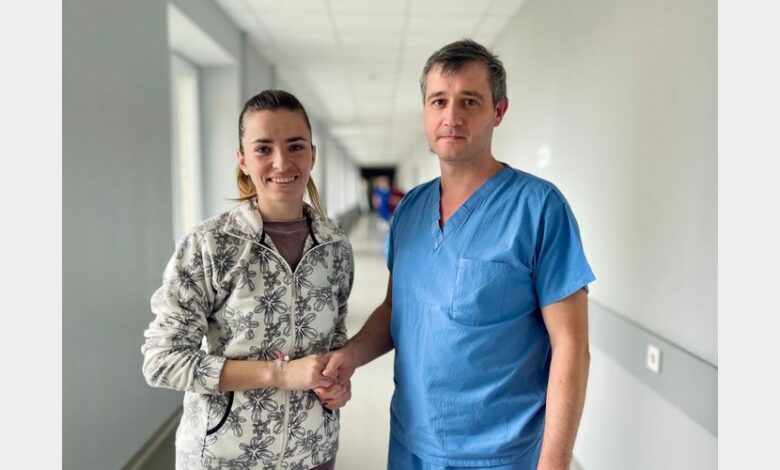
A 31-year-old woman could not eat for six years and lost weight in front of her eyes, and all this time she was looking for specialists who would help her recover. And for this she covered the way from Cherkasy to Lviv. The surgeons of the St. Panteleimon Hospital of the First Medical Association of Lviv operated on her and she was able to eat again.
Lyubov Prokopenko from the city of Cherkasy. For the last 6 years, she literally could not eat, because after eating, she began to vomit. None of the examinations gave results, the doctors could not make a diagnosis. Moreover, the woman was referred to psychiatrists. Like, she thought of something.
But three years ago, doctors found out that the patient had esophageal achalasia. This is a disorder of esophageal motility characterized by loss of peristalsis and inability of the lower esophageal sphincter to fully relax in response to swallowing. But doctors did not dare to operate.
The last year was the most difficult in Lyuba’s life. She lost 10 kilograms. After all, absolutely every meal provoked vomiting. Therefore, throughout Ukraine, the woman was looking for surgeons who would operate on her. That’s how she ended up in the surgery center of the St. Panteleimon Hospital. Here, specialists conducted additional examinations and confirmed the diagnosis – esophageal achalasia. Simply put, the esophageal sphincter was closing and not opening. The patient’s esophagus expanded to 6 centimeters, and the narrowing point – the sphincter – was 4 millimeters, which is a critically narrow opening through which food cannot enter the stomach. If the woman had not been operated on and her ability to eat had not been restored, she could have died later.
The woman was operated on minimally invasively. Technically, the operation is complex and jewel-like. During the intervention, surgeons cut the muscles that clamped the opening between the esophagus and the stomach and formed a cuff so that the contents of the esophagus could pass freely to the stomach and not return back. The operation lasted only an hour. And already on the third day after the intervention, the patient went home in good health. Not only did she start eating, she developed an appetite.
As the surgeon Andrii Stasyshyn explains, there is no single reason for the development of achalasia of the esophagus. Doctors believe that such anatomical changes can occur as a result of a malfunction of the nerve cells of the esophagus, as well as due to genetic predisposition, complications of other diseases.

